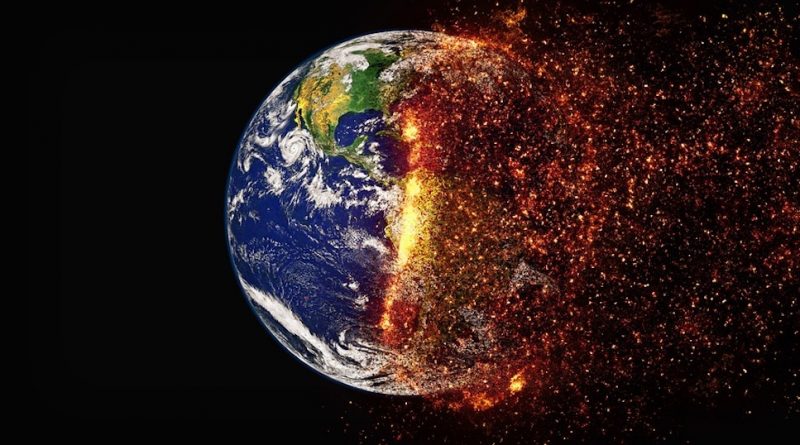July 2019 Was The Hottest Month On Record
Allison Brace
Contributing Writer
July 2019 has been reported as the hottest month on record. While July is expected to be toasty every year, this one in particular was record breaking.
“The new record is another example that confirms scientist projections of climate warming,” said Ryan McEwan, associate professor of biology at UD. “Those projections indicate continued warming into the future due to excessive greenhouse gas emissions from human combustion of fossil fuel.”
June was a record-breaking month as well.
“The record-setting July follows the hottest June on record, rising .71 degrees Fahrenheit (0.95 Celsius) above the average temperature for that month,” according to TIME.
Although this might seem like a small increase, the effects are great.
The Environmental Defense Fund website posted that “A warmer world — even by a half-degree Celsius — has more evaporation, leading to more water in the atmosphere. Such changing conditions put our agriculture, health, water supply and more at risk.”
See also- UD Students Participate In Global Climate Strike
Climate change is due to many factors of our planet today, however, the rising greenhouse gas levels have a massive impact on our climate.
“Greenhouse gas pollution traps heat in the atmosphere, which has consequences. These consequences areprevalent specifically in the Arctic regions with the melting of sea ice,” the TIME article said.
The National Oceanic and Atmospheric Administration stated that sea ice levels were at about 19.8% below average this year. This is caused by the extreme temperatures that have affected almost every continent on the planet.
“Global warming can threaten food crops, making food more expensive and leading to shortages,” McEwan said. “It can lead to more destructive storms and create opportunities for diseases to spread into new areas. As outlined in Laudato si’, (Pope Francis’ second encyclical) these negative effects will likely be felt by the world’s most vulnerable and impoverished people.”

The increased temperatures also have negative health effects on humans. Heat illnesses are more likely to occur when doing regular outside activities when the heat and humidity are at this capacity.
Additionally, dangerous wildfires are breaking out in various places around the world, including the Arctic according to the Washington Post.
McEwan said everyone can take action to reduce their personal contribution to climate change.
“People living in highly industrialized countries, like the United States, are disproportionately responsible because we consume a lot of fossil fuels in our daily lives,” McEwan said.
Here are some tips from the Earth Day website on how everyone can get involved to combat climate change:
1. Be informed, know your facts about climate change.
2. Hold yourself accountable, everybody makes an impact on climate change, make yours positive.
3. Shop smarter, support companies that encourage sustainability and commit to transparency.
4. Vote for YOUR Earth, consider the climate issues on your local, national, and global ballots.
5. Get other people involved, organize groups and ban together to make a difference. Good friends keep us accountable!

